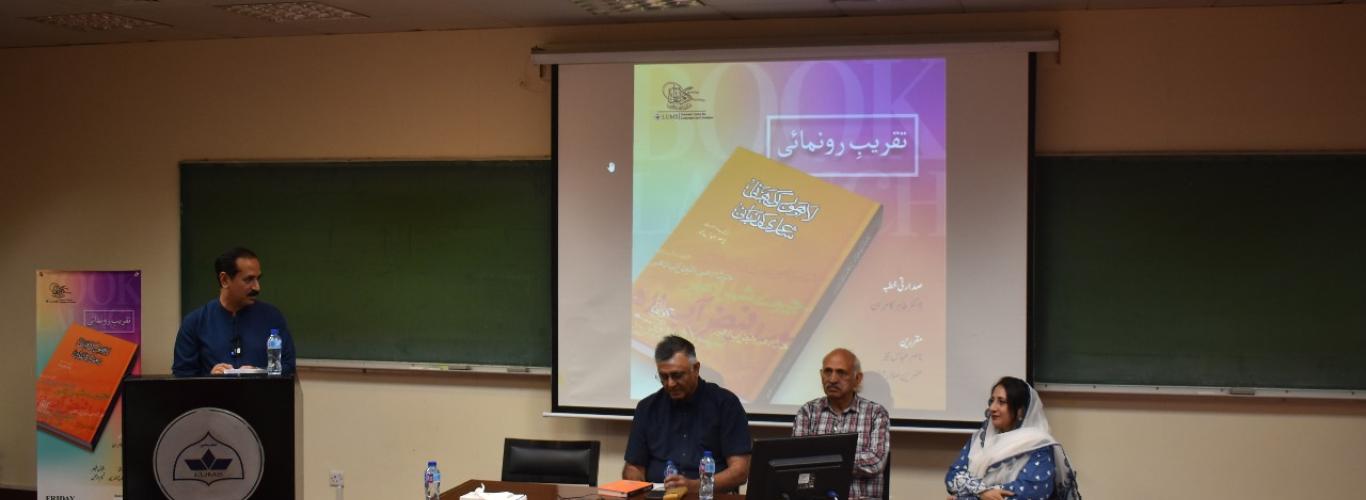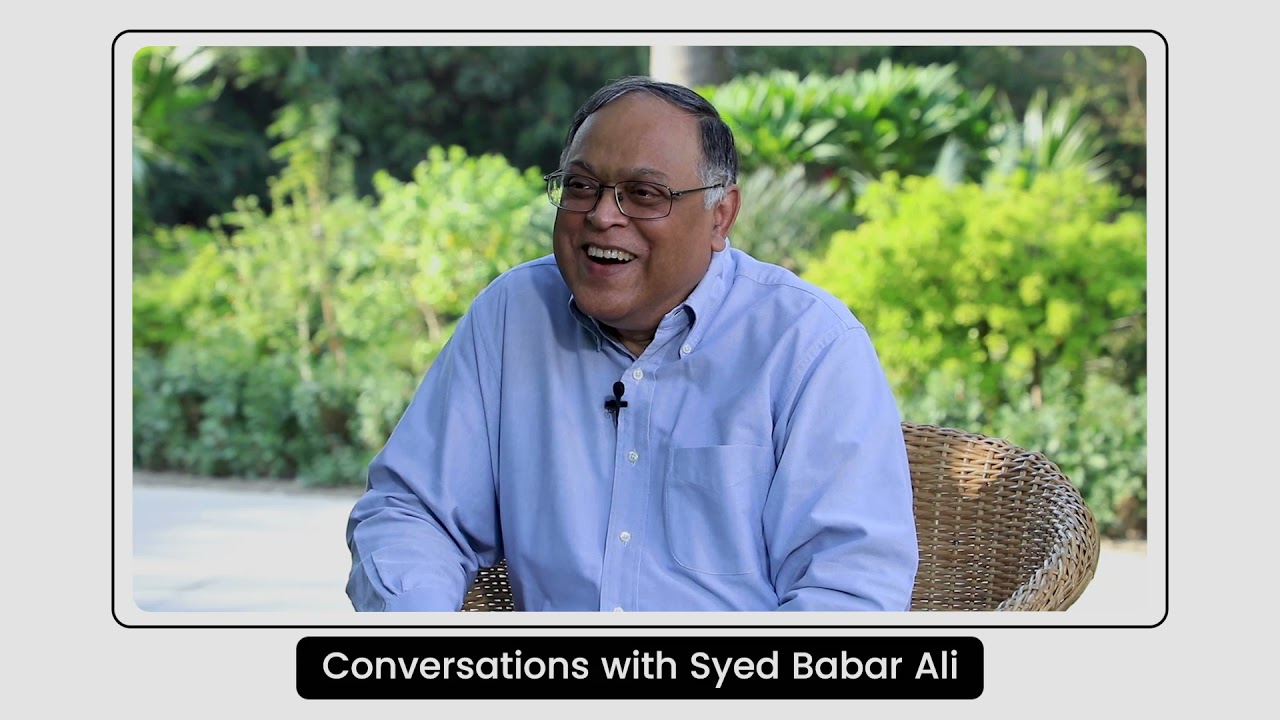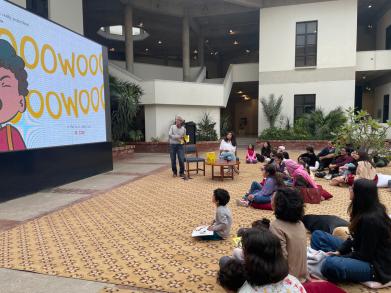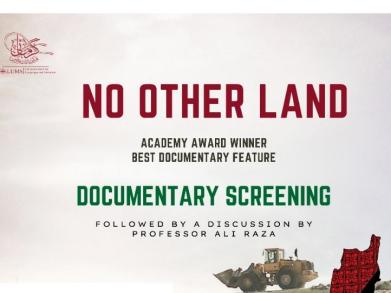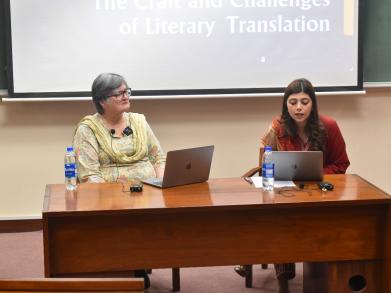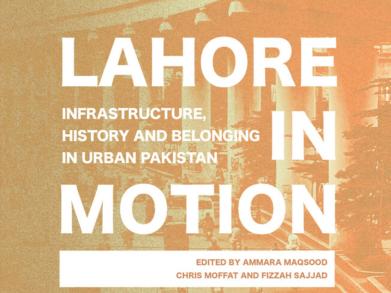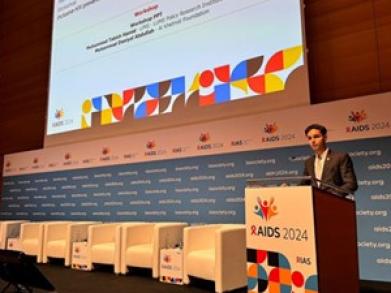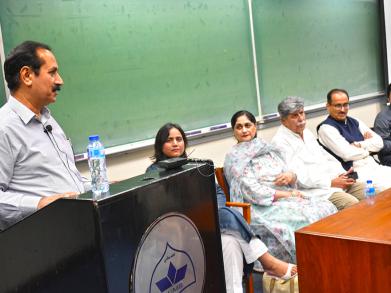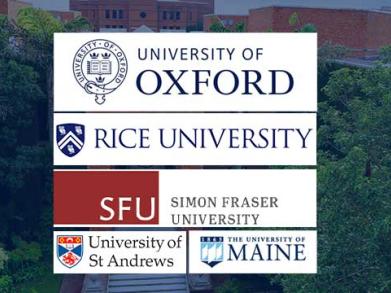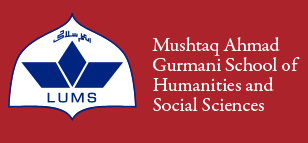Lahore ki Kahani, Shayari ki Zubani
The Gurmani Centre for Languages and Literature at LUMS organized a book launch ceremony for Lāhore kī Kahānī, Shāiyrī kī Zubānī on October 11, 2024. The event aimed to celebrate the contributions of scholars and engage in critical discussions about the significance of space and place in literature. A distinguished panel, including Dr. Ambreen Salahuddin, Iqbal Qaiser, Dr. Nasir Abbas Nayyar, and Dr. Tahir Kamran, led the discussion. The panelists shared their insights regarding the book and emphasized its relevance in contemporary literary discourse.
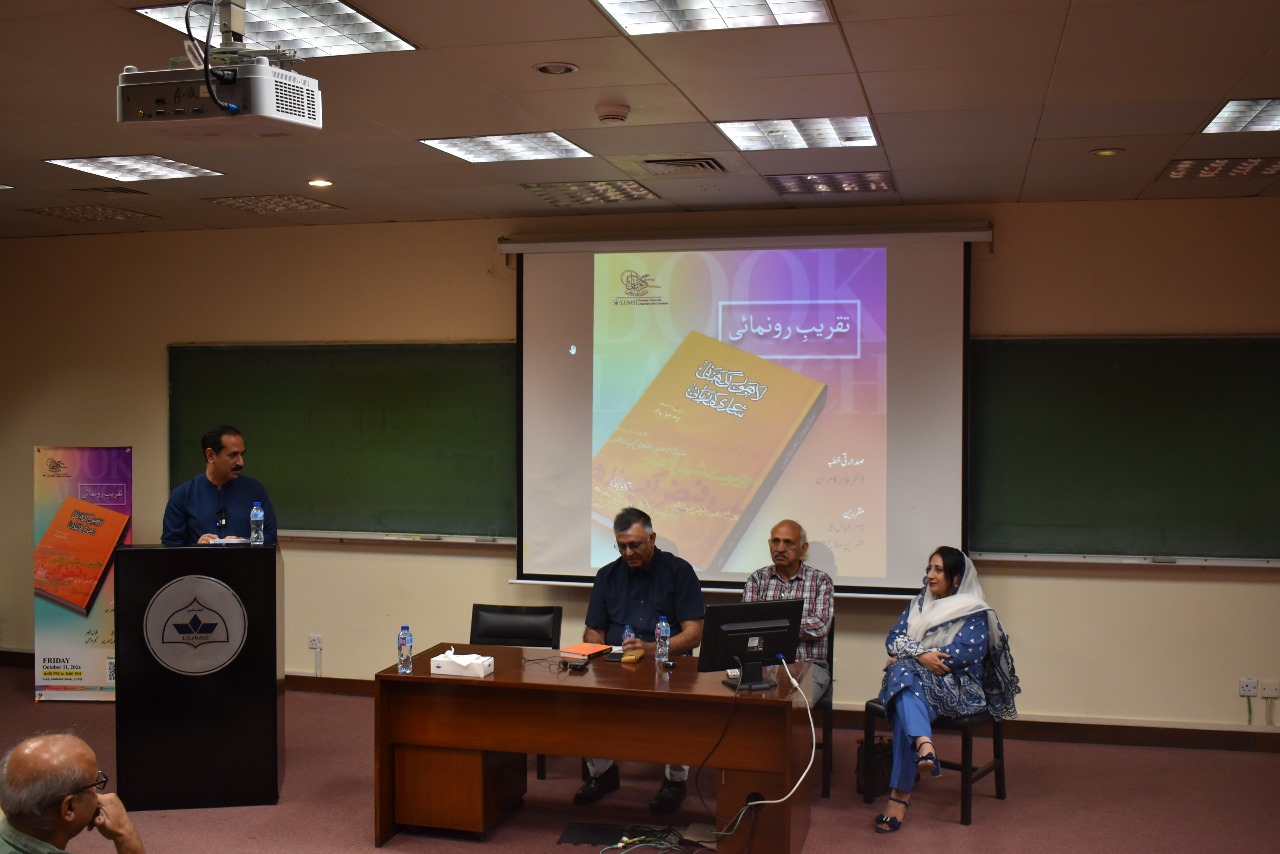
The session commenced with opening remarks from Dr. Nasir Abbas Nayyar, the editor of the book. Dr. Nayyar elucidated how Lahore is reconstructed in literature, highlighting the images created by poets and writers. He articulated the process of how a space is produced, conceived, and lived, asserting that this lived experience is reflected in literature, art, and poetry. Dr. Nayyar discussed Lahore’s intricate relationship with literature and stressed the importance of understanding this connection from academic and scholarly viewpoints. He noted that while Urdu criticism has a rich history encompassing historical, sociological, cultural, and linguistic perspectives, discussions of space and place have often been overlooked. He argued that analyzing Lahore as a city of literature invites specific debates related to Utopias and Heterotopias. Additionally, Dr. Nayyar highlighted the transcendental nature of places and spaces within literary discourse, noting how the construction of internal spaces depends on the external.
Following Dr. Nayyar's remarks, Dr. Ambreen Salahuddin provided her insights on the book, stating that poets and writers often capture the most unbiased history of a city. She further explored the book's preface, referring to it as the "Sheharnāmā," which articulates a comprehensive and abstract understanding of a city. She emphasized its significance in guiding how cities should be analyzed within literary research. Dr. Salahuddin also explored the importance of considering gender in discussions of literary representation and urban experience. She examined the works of various female poets concerning the Lahore city, noting that the discourse generated by female voices often lacks a sense of agency regarding external spaces compared to their male counterparts.
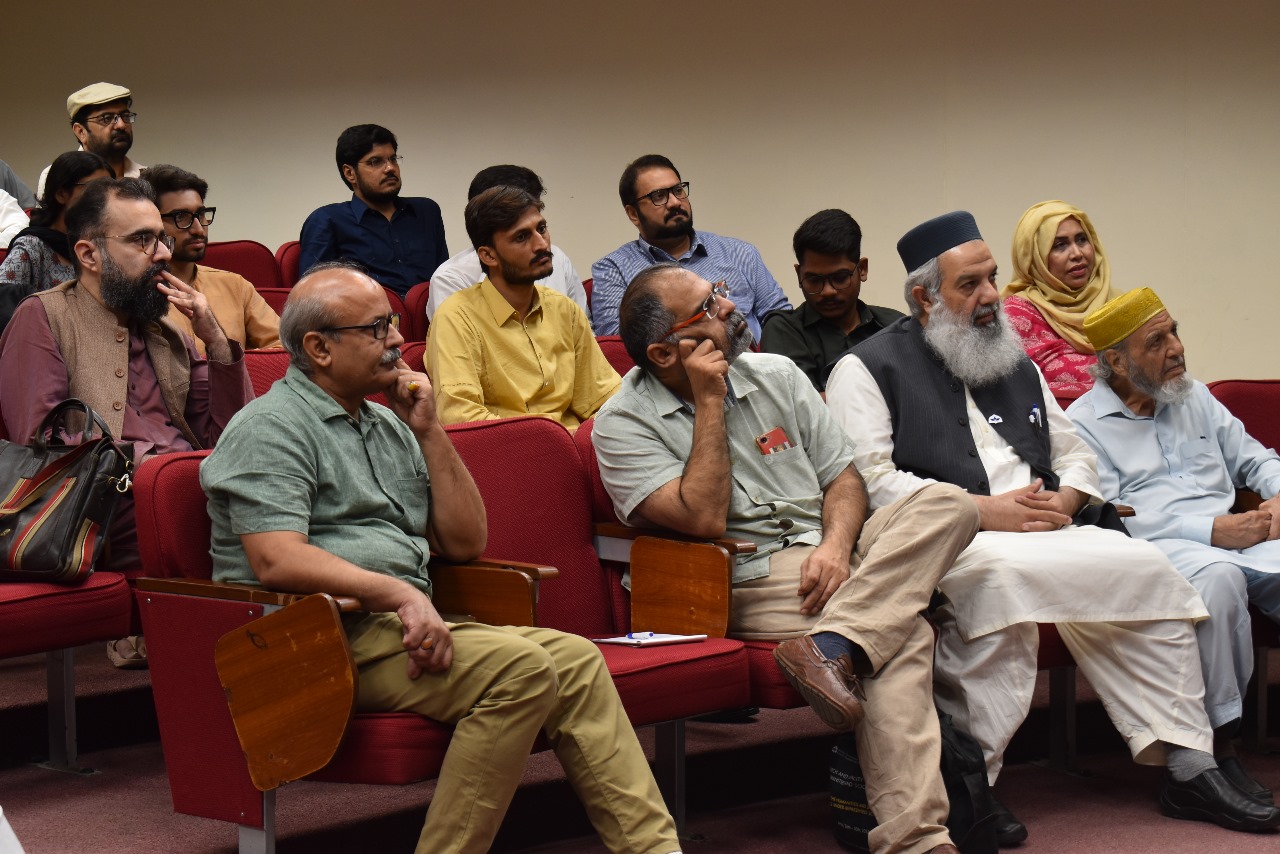
Afterward, Iqbal Qaiser praised the book, highlighting its potential to stimulate further debates and research on the city of Lahore. He noted that the book not only presents a comprehensive and diverse range of topics related to Lahore but also has the capacity to initiate discussions specifically focused on the partition and its literary representations. He shared intriguing insights regarding the nostalgia surrounding post-1947 Lahore and emphasized the significant reservoir of poetry related to the city found in the Persian language. This perspective enriches the discourse on Lahore’s cultural and historical narrative, offering more dimensions for future exploration.
The session concluded with the presidential remarks of Dr. Tahir Kamran, who emphasized the significance of the discussions in the context of literary theory related to space and place. Dr. Kamran articulated that the temporal context is vital and should be considered alongside space, as both exist as a continuum. He elaborated on the interconnections between space, time, and the individual, equating time with tradition, the individual as the guardian of traditions, and space as the embodiment of meaningful reality. He stressed the importance of acknowledging the colonial experience and its role in shaping a new understanding of humanity. Dr. Kamran extended the discussion to include the impact of migration associated with the partition, suggesting that this context renders a poet's relationship with their living space somewhat dormant. He explained that poets often dwell in the memories of their previous homes, continually searching for the old city within the new, as their emotional and psychological ties to their homeland create a sense of disconnection from their current surroundings, thereby limiting their engagement with the present. He cited Nasir Kazmi’s longing for Ambala in his poetry and Sajjad Baqir Rizvi’s quest for Allahabad in Lahore.
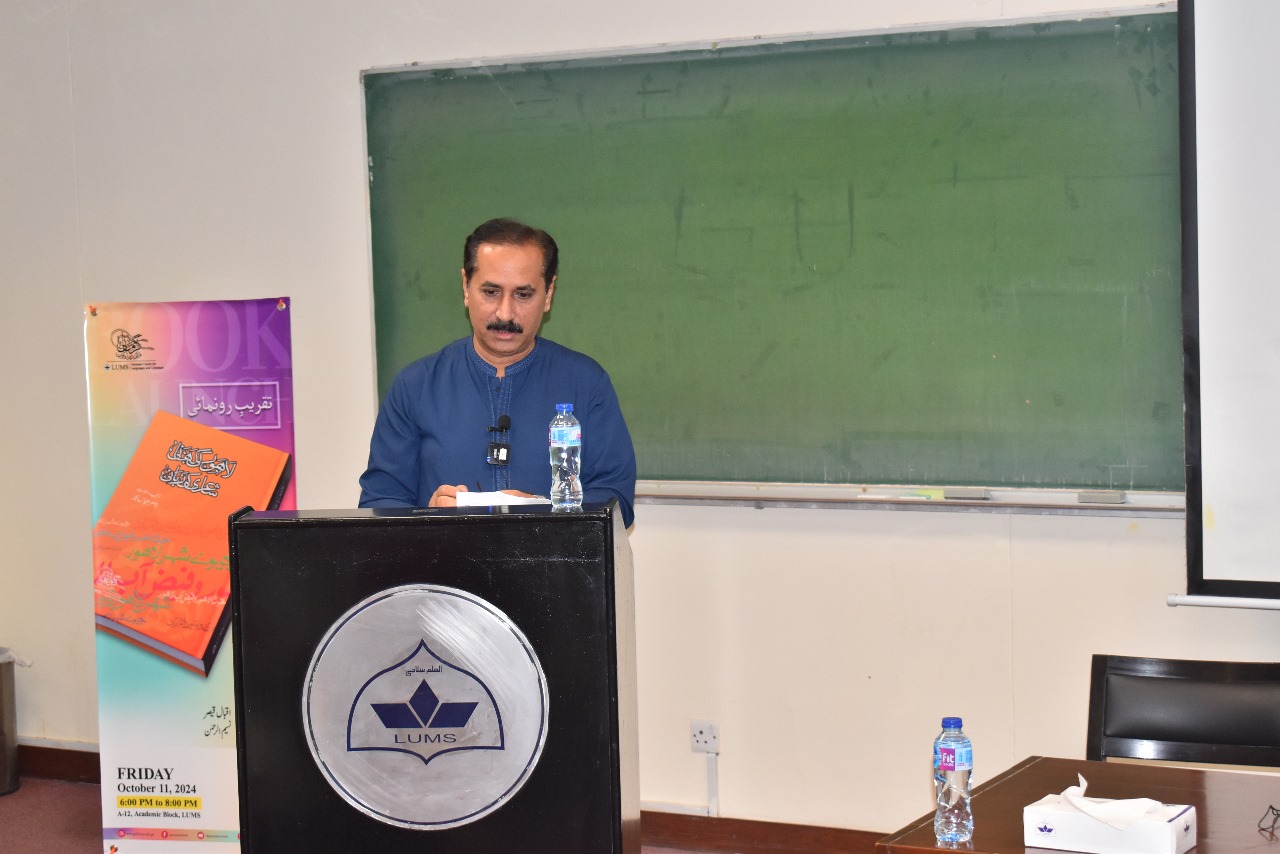
Dr. Kamran also addressed the vicarious role of literature in understanding Lahore, noting how the voices of the city resonate within its cultural fabric. He posited that the postcolonial moment in Pakistani academia is still forthcoming. Furthermore, he discussed the concepts of Madn, Madnīyat, and Wāsaib to deepen the understanding of decolonial and indigenous notions of space.
The book launch successfully generated an engaging dialogue about the significance of understanding how spaces and places are represented in literature, encouraging further exploration in this area of scholarship. The session concluded with a rigorous question-and-answer segment, allowing a dynamic exchange of ideas.

